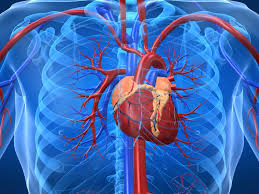
Diagnosed with Cancer? Your two greatest challenges are understanding cancer and understanding possible side effects from chemo and radiation. Knowledge is Power!
Learn about conventional, complementary, and integrative therapies.
Dealing with treatment side effects? Learn about evidence-based therapies to alleviate your symptoms.
Click the orange button to the right to learn more.
- You are here:
- Home »
- Blog »
- Healthy Living Products »
- PQQ, Anti-Cancer, Pro-Heart Health
PQQ, Anti-Cancer, Pro-Heart Health

“Chronic heart failure (CHF) is usually caused by systolic or diastolic dysfunction (1). Mitochondria, as important organelles for maintaining heart function, provide energy for each heartbeat (2).”
Dear David- Very interesting article about anti oxidants (PQQ) increasing cancer growth. I have helped many people over the years with everything from
- brain tumours,
- breast cancer,
- stomach cancer,
- multiple myeloma,
you name it.
I am lucky enough that some of these people allowed some experimentation on themselves. This is what we found, backed up through blood tests and scans.
While treating people with THC/CBD and a couple of other supplements we found that the anti oxidant increasing the cancer cell growth rate to be a double edged sword to the cancer. The faster it tried to reproduce the more THC/CBD and other supplements became effective. We proved this with 5 people, albeit a small sample, with identical breast cancer (HER2) all virtually at the same size tumours and all very similar blood markers.
PQQ at 20mg twice a day absolutely increased apoptosis, not decreased it. Initially the 3 on PQQ noticed increased palpable tumour size along with an increase in markers. We were initially very worried but the 3 ladies continued on. Around 6 weeks after the taking PQQ all the markers fell off a cliff and tumour size shrunk, so dramatically that the other 2 women who were only on THC/CBD and supplements took up PQQ too. Same time period their marker also fell off the cliff and decreased dramatically.
My friend has Parkisons disease, we have been treating him with our own auto-immune protocol I developed for my own graves disease. Adding 20mg PQQ 2 times a day, the difference was noticeable within a week.
I think some of these studies that are carried out with only one supplement in isolation of other supplements are a complete fraud, this being one of them. PQQ is now one of our staple supplements when treating cancer, heart disease and auto immune diseases. Michael
Hi Michael,
- MM Survivor
- MM Cancer Coach
- Director PeopleBeatingCancer
Recommended Reading:
- Got Heart Failure? Get Brain Training, Exercise, Supplements, Diet
- Heart Failure + Surgery = Higher Risk of Death
- Chemo-Induced Heart Failure-Cardiac Rehabilitation- Omega-3 fatty acids
Pyrroloquinoline Quinone Induces Cancer Cell Apoptosis via Mitochondrial-Dependent Pathway and Down-Regulating Cellular Bcl-2 Protein Expression
“As an essential nutrient, PQQ is a water-soluble and thermal stable small molecular organic matter, exists in various plant and animal cells, at pM to nM levels 3, 4. Researches of PQQ have been focused on its activities as an antioxidant and redox modulator5, cardio- and neuro-protectant 6, 7, and its radioprotective effects on hemopoietic system 8.
Recently, studies showed that PQQ could induce apoptosis in human promonocytic leukemia U937 and lymphoma EL-4 cells, as well as Jurkat cell programmed death 5…
Pyrroloquinoline quinone can prevent chronic heart failure by regulating mitochondrial function
“Chronic heart failure (CHF) is usually caused by systolic or diastolic dysfunction (1). Mitochondria, as important organelles for maintaining heart function, provide energy for each heartbeat (2). Increasing evidence suggests that mitochondria are the power plant of the heart; however, like an old battery, the heart will eventually be depleted in patients with CHF (3).
Mitochondrial dysfunction and the development of CHF, especially heart failure caused by pressure overload, are causal and vicious cycles (4). The pathological mechanisms of mitochondrial disorders are very complex and include mitochondrial Ca2+{[Ca2+]m} homeostasis, protein modification regulation, mitochondrial membrane potential (ΔΨm), and mitochondrial redox. In cases of CHF, mitochondrial biogenesis changes, redox imbalances, [Ca2+]m homeostasis alterations, and increased mitochondrial permeability transition pore (mPTP) openings occur (3,5). Therefore, the prevention of mitochondrial dysfunction has become an effective treatment for CHF (6).
Pyrroloquinoline quinone (PQQ) is a known potent antioxidant cofactor that is widely distributed in animal and plant tissues and is an indispensable nutrient in mammals (7), as PQQ deprivation affects mitochondria and mitochondrial function in these species (8)…
Conclusions- In summary, we verified for the first time that PQQ can regulate [Ca2+]m homeostasis by increasing NCLX expression, thereby reducing ROS production and preventing a decrease in the ΔΨm.
In addition, we demonstrated that PQQ can upregulate PGC-1α and TFAM to improve mitochondrial biogenesis and maintain mitochondrial morphology. These results verified that PQQ can prevent mitochondrial dysfunction induced by cardiac pressure overload and slow or prevent the development of CHF…”

